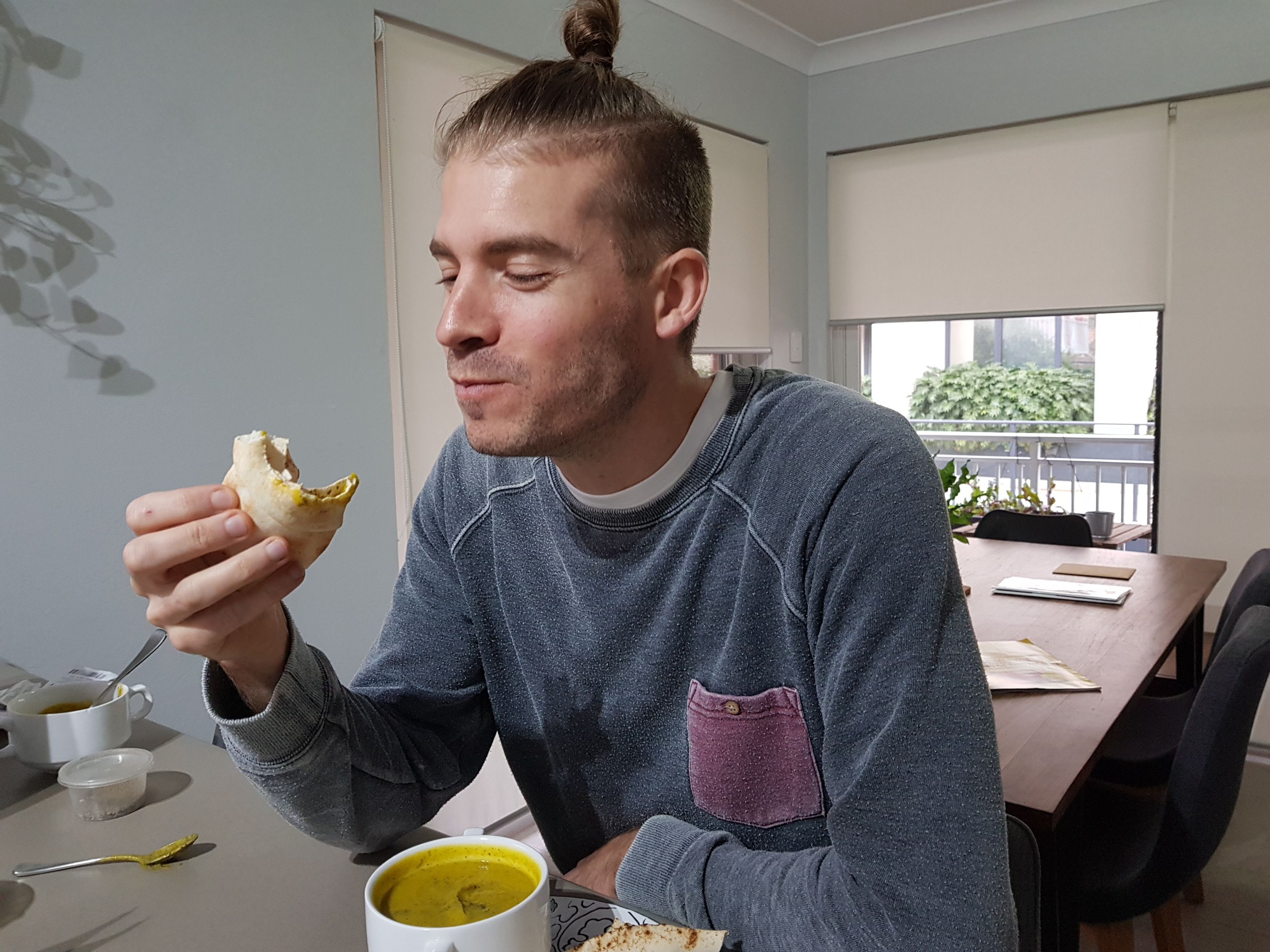You’re the Pilot and Navigator. [Proactive Life Planning One Day at a Time] [Part 2 of 2]

I’m back again with the second and final part to this micro-series to pick up where we left off. I’ll be sharing how I started daily life-planning, how I’ve been using operant conditioning to keep me working hard on myself, and I will share with you seven useful tips on developing the habit of using a daily journal.
It started with an old exercise book I had lying around.
I started filling the first couple of pages with mind maps – a main idea written within a cloud shape with related ideas shooting off it like roads heading outward from “cloud city”. These ideas ranged from what I wanted to where I wanted to go as well as entertaining the wild hopes and dreams that had been buried in my subconscious, possibly since childhood. Nothing was off-limits. Why should it be? If you can’t even have these dreams live and flourish within your own mind in vivid technicolour, how could you ever expect even a fraction of them to burst into the material world. So, I let my imagination run wild. And that’s the key. I dreamt up my own wild adventure and the kinds of successes I wanted for myself and for the people around me. I encourage you to do the same and follow my lead. You’ll start to feel empowered and wonder why you hadn't done this sooner.
There’s absolutely nothing wrong about blowing a bunch of hot air – but it needs to be private, focused and guided to a specific purpose.
Operant Conditioning – A Recent Development in my Planning.

Using an immediate reward system for yourself after completing challenging goals can reinforce the behaviour. My rewards are small and relatively cheap but provide the dopamine hit I need that pairs with the hard work I completed.
After doing this ‘planning thing’ myself for about four months and hitting regular work targets (including even developing a work ethic I can be proud of), I’m beginning to feel like an expert. Although I’m definitely humble enough to realise the few books I’ve read and practices I am engaged in isn’t the whole picture. I noticed very early on (the second day, in fact) that a daily plan had a requisite. Every single day requires a new plan, action, and review. There’s no shortcut. However, this is the best part!
When you’re planning daily, you notice things that stand out from the rest, sometimes in blazing fluorescent highlighter.
As I leaf through my second journal for the year so far, aptly titled, “Goals and Daily Planning”, I have come across a day that stands out like Christmas on a calendar. In fact, it looks more like a decorated Christmas tree. My page is full of green, yellow and orange fluorescent highlighter streaks. The more the better. It means I’ve been referring to the book during the day, hitting targets and doing a lot of reflecting. Since I’ve been planning my days for over four months and using a page for each day, I’ve accumulated in the order of about one hundred and twenty pages of daily plans. Most entries are mundane, like “Hang out the washing” or “Practice French for 30 minutes”. It really isn’t all that remarkable. Nor should it be. It’s a tool to keep myself accountable and developing rhythm and habit. While some people use a to-do method and cross out what they’ve done, I used check boxes. I just draw a little square in front of each activity and tick it, then highlight it when it is complete. I list the most important things I must do towards the top, which also coincides with the time of day. As I’ve started taking a new DHA supplement, it’s also at the top of the list because I take it with breakfast. I’m now almost in the automatic routine of mixing it in with my oatmeal, so it will probably be left off my page in a few weeks as I’ve got the habit hard-wired into an already very strong healthy breakfast eating habit. I marked off the DHA checkbox. That’s an easy one. What about the harder stuff?
I write (including reading and editing) for a minimum of two hours on both my manuscript and a Steemit article every day.
On the weekend, it’s usually more. Who could conceive of a world where Henry Ford advocated and pressured other business operators into offering two days a week for leisure time to throw it back in his face and work harder for yourself than you did for him during the week? What a revolution!
Most productive activities are not always immensely pleasurable. They might be fun, but just not always your first choice of what you might want to do at that moment in time. You can at least partly blame technology and social media for our short-sighted desire for instant gratification and continual newsfeed scrolling and understand that the human mind is wired to search pretty hard for easy ways to do almost anything while seeking maximum pleasure. Even the dishwasher, which, to me, seemed like a relatively new invention to eliminate the need to waste time washing up, was patented in the mid nineteenth century! Seeking extra leisure time isn’t new. Just today, I was whinging that I’m certain I spend close to an hour each day washing up after meals. How else could this time be spent as many of us aim to free up more of it? Loafing on the couch in the evening to binge watch the last season of Game of Thrones before the final season comes out would certainly make us feel satisfied. At least in the short term.
If you can find easy ways to feel great (that’s the dopamine entering your bloodstream) like having more time to enjoy entertainment or even by consuming sugary foods, why go through a battle of will eating healthfully and exercising when it feels nowhere near as good? You could sit on your backside after work instead of practicing flute for ninety minutes. It might be more pleasurable in the short term, but is it likely to turn into a long string of regrettable life choices that culminate in a life full of television absorption and little else? While technology is on an ever expanding quest to free up more time, best you spend that extra time engaged in activities that are meaningful. That is, strengthening social ties, improving a fulfilling skill (that brings value to others as well as yourself) or improving your state of health. It would appear futile for me to gain an extra hour every day only to develop the habit of squandering it on new unproductive impulsive pleasures. I’ve been there (and I regularly visit those places), but I am rewarded with a sense of satisfaction that runs deeper when I work on deliberately planned productive activities. When reflected on in years to come, the satisfaction that comes with deliberate meaningful activity (that can be at times, hard) is far more substantial and rewarding than sugar hits and binge-watched television series.
My experience here is, if I’ve scored an extra hour or I’m simply managing my afternoons, evenings and weekends, I ask myself what’s unavoidable (cooking, cleaning and so on) then allocate time for the things I’ve chosen to prioritise. While my priorities lay in developing my writing, learning a new language and maintaining my aerobic fitness, yours may be to overcome a crippling fear, proactively deal with relationship troubles, get your finances back on track or to learn how to drive a car. It’s your life and it’s your choice.
Use immediate rewards to fuel behaviour change.
One not-so-novel way of adjusting my behaviours to stick to what I have written in my journal, like “write for two hours”, involved a simple strategy that has been working pretty well. Operant conditioning is a fancy way of describing a system that rewards (reinforces) a particular behaviour. It’s divided up into both positive and negative reinforcement (as well as punishment), but I’m not going to discuss anything more about that side of the psychological theory. Just think of what it was like when mum praised you for washing up a couple of dishes. The praise felt good and your brain began to notice that whenever you worked around the house, mum would show you extra affection even if your conscious mind didn’t pick up on it. I’m not pretending I’m able to trick my subconscious, because clearly, I’m the one giving myself the reward. Sadly, there’s no hiding things from myself. So I went in hoping for success despite the perceived flaws I saw. This was my plan.
After every hour (now becoming more like 90 minutes) of contributing to my manuscript, I reward myself by revealing a Pokémon card from a new booster pack.
It’s a tiny, but appropriately sized thrill that in part, gets me excited to sit down and make that hour fly by to get my little hit of dopamine built up by the anticipation of revealing a new card. Of course, if I had no interest in developing my writing or in the stories I was sharing with my audience, that would be a big barrier to overcome. And why attempt to reinforce a behaviour or activity that doesn’t even give you some short term pleasure? That would seem idiotic to say the least. I had hoped that the reward of a surprise card reveal with the added potential of finding a rare card or something shiny (now who doesn’t like shiny collector cards?) would strengthen the behaviour to get into my office and working quickly after getting up the morning, home from work or throughout my weekend. The key was that the reward needed to be temporally sensitive to the behaviour I wanted to reinforce: The card reveal needed to be straight after the writing session. Not five minutes later. Immediately.
I have also been using a slightly different reward system to fuel my half hour of French lessons (which, after some reflection may need to be increased up to at least 45 minutes of daily practice). The reward system for that activity is that I am able to set aside money for a single comic for every seven-day streak of uninterrupted daily French lessons. I’m currently up to 51 days, earning me 7 comic books and change. I think it’s working, wouldn’t you? Do you notice the difference in which the rewards are enjoyed? Aside from the reward itself, there are temporal distinctions. The Pokémon card reveal is immediate whereas the comic book is delayed for a whole week, and even then, I rarely buy comics weekly. Sometimes even the purchased comics that I have in my possession sit on my shelf unread and unappreciated for weeks. So, I’m getting to understand how different types of reward systems as well as the rewards themselves are influencing my behavioural choices.
I’m sort of proud that I have Kill or be Killed #20 still unread since last year, but that’s because I just don’t want to know the ending [the completionist in me still had to buy the book, though!].
I have a sneaking suspicion that the powers of conditioning will be diminished if I make the goal harder to accomplish with the same reward (sixty minutes per day equates to one “comic credit”). There’s ways of finding out, including measuring my progress over time with various reward strategies. If I find that this current system is working well enough, I may not want to mess with it! Science may push me to seek my optimal levels, however, even if there’s a risk it will all come undone (I doubt it, though!) I’ll keep you posted on any new updates.
Developing the habit of using a journal or planner.
The hardest part of journaling and planning with your exercise book (or other planning tool) is getting into the habit of actually referring to it daily. And I mean every day and constantly through the day, amending as you go as twists, turns and spanners are thrown into your carefully planned agenda. It’s time I told you something. Your plans will come unstuck all the time. When you record just how things came unstuck, like “missed dinner with family because work meeting ran late” or “couldn’t make tennis lesson because mechanic found more issues with car” you will feel empowered to know when to refuse overtime and forgive yourself for unforeseen circumstances. After all, for all the annoying things that seem to get in the way, we are all just trying to make the most of the time we have.
Tips for developing the habit of using a journal.
- Label it.
- Decorate it. (This will give it additional value to you.)
- Write three meaningful reasons why you are using it on the inside cover.
- Keep it in a prominent place you will see it. (Mine is either on my work desk or on the kitchen table, with my current book on top of it.)
- When you look at it, go and open it and check what you’ve accomplished, what is left to do and make amendments as you go. (I add extra push ups if I’ve achieved the day’s goal already and it’s reasonable that I could squeeze in fifty more.)
- Make sure you plan your next day that night and visualise how it will look, then when you wake up and walk past your journal, open it and refresh your memory.
- And.. every night that you plan your previous day, give yourself a small reward. After all, these are the first baby steps to becoming a world-champion life planner!
Just as a budget is a tool that helps you manage your own financial resources, a journal will assist you plan your time more effectively. Neither have the ability to control your life - you are the one in control. It's time to take the reins! If you've had success using your own set of tools and strategies, I'd love to hear from you.
Yours in Success,
Nick.
All content is original and belongs to @nickmorphew [15 April 2019].
Disclosure: This article was not a paid promotion and was not self-upvoted. Nor were there any affiliate links.
I’m currently working on my debut fantasy novel based on my early work, Adventures in Elowyn Glade. Please contact me if you would be interested in supporting the project to secure a high quality publication.
You didn’t think you’d leave here without me shamelessly plugging my other work, right?
Recent Articles.
Vegan Blood Test Examination; A Voyage into My Arteries.
Everyone Agrees Junk is STILL bad. [The First Thing You Should Change is What You Eat.]
Plant-based Nutty Chocolate Truffles [And an Afternoon With a Young Friend].
Is Your Memory Betraying Your Intelligence? [Take This Challenge!]
Writing and Decision Making; [Making Tough Choices].
Welcome Back to Reality [Remember the Goals].
Avoiding the Perils of a Placid Life [From None to Run]
Vegan Recipes for the Converted and Uninitiated Alike.

Vegan “Matcha-Monsta” [Green, Nutty Icecream]. A Decidedly Delicious Dessert.

Vegan Blueberry Pancakes: Breakfast Made Super Easy!

Pumpkin and Kale Vegan Soup [An Unpredictable Love Story].
How to Bake Scones; VEGAN STYLE! Cruelty-Free Living Made Easy.

Restaurant Reviews (and Tesla Showroom)
[100% VEGAN] Shift Eatery Surry Hills
[100% VEGAN] Matcha Mylkbar, St. Kilda
[100% VEGAN] Lentil as Anything, Newtown
Da Orlando Wood Fire Pizzeria, Wollongong
Do you enjoy gory mystery-thrillers?
Two devious, psychopathic minds go head-to-head trying to out-kill one another. Who will die at the hands of the two and how far will it go until the entire state is on the hunt for the duplicitous duo?
Check out The Coroner. Part 1 and Part 2 are linked.
So, you're a Star Wars fan? I almost wasn't.
In a two part micro series, learn of the devious practical joke my uncles played on me as a child. You'll never think of Darth Vader the same way again.